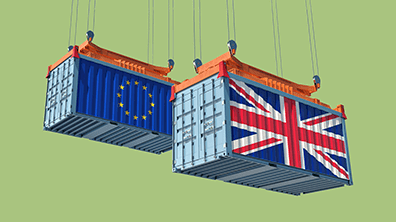The Chancellor has announced a range of measures designed to stimulate business investment, including reliefs for losses and a super deduction for qualifying capital expenditure but also confirmed corporation tax rates will increase for many companies.
The main rate of corporation tax will rise from 19% to 25% in April 2023, bringing in an estimated £17.2bn extra revenue by 2025/26, according to the government.
Only the largest 10% of companies will be affected by this increase as the existing 19% rate will be retained for small businesses with annual taxable profits of up to £50,000. Companies with profits between £50,000 and £250,000 will pay tax at the main rate reduced by a marginal relief providing a gradual increase in the effective corporation tax rate.
During 2021, the government will review the existing 8% surcharge on banking companies to ensure that the combined rate of tax charged on UK-based banks remains competitive compared to the US and the EU.
In the short term (the two years from 1 April 2021), the Chancellor hopes to stimulate investment by providing a “super deduction” of 130% of eligible expenditure by companies on qualifying plant and machinery. This will generate a reduction in tax of 24.7p for every £1 spent. Expenditure on special rate assets (eg, hot and cold water systems and other “integral assets”) will attract a 50% rate and a 9.5p tax reduction.
The annual investment allowance (AIA) limit of £1m will continue to apply until the end of 2021. As the super deduction is not available to unincorporated businesses, they will be expected to continue to claim the AIA. Since special rate expenditure for companies will only benefit from a lower rate of deduction, they should consider allocating the AIA first to special rate assets.
There is more good news for companies and unincorporated businesses making trading losses in 2020/21 and/or 2021/22. They will be able to carry back these losses for up to three years to offset against taxable profits (for companies) or net income (for individuals) in those years on a last in first out basis.
The loss carry back extension applies to a maximum of £2m for each company, corporate group or unincorporated business per loss-making year.
As well as a group cap of £2m, each company within a group is limited to a cap of £200,000 per loss-making year. The ability to carry back to the previous 12 months remains unlimited.
The Chancellor also announced the introduction of eight new “Freeports” around England which will attract favourable tax and other incentives. These include:
- An enhanced 10% rate of structure and building allowances for the construction of structures and buildings brought into use on or before 30 September 2026.
- Enhanced capital allowances on qualifying expenditure by companies on or after site designation until 30 September 2026 on plant and machinery for use within Freeport tax sites.
- Stamp duty land tax relief for purchases of land and buildings within a Freeport tax site, subject to a “control period” of up to three years and the land being acquired and used in a “qualifying manner”.
- A five-year period of business rates relief in Freeport tax sites in England for new and certain expanding businesses for periods commencing before 30 September 2026.
- Relief from employer national insurance contributions for eligible employees in all Freeport tax sites from April 2022 until at least April 2026, subject to parliamentary approval.
Budget 2021 Report
ICAEW's Tax Faculty will be publishing its comprehensive summary of the tax-related Budget announcements on Friday 5 March.
Autumn Budget 2021
Read all of ICAEW's insights and analysis of the Chancellor's announcements on 27 October, as well as useful background information.




